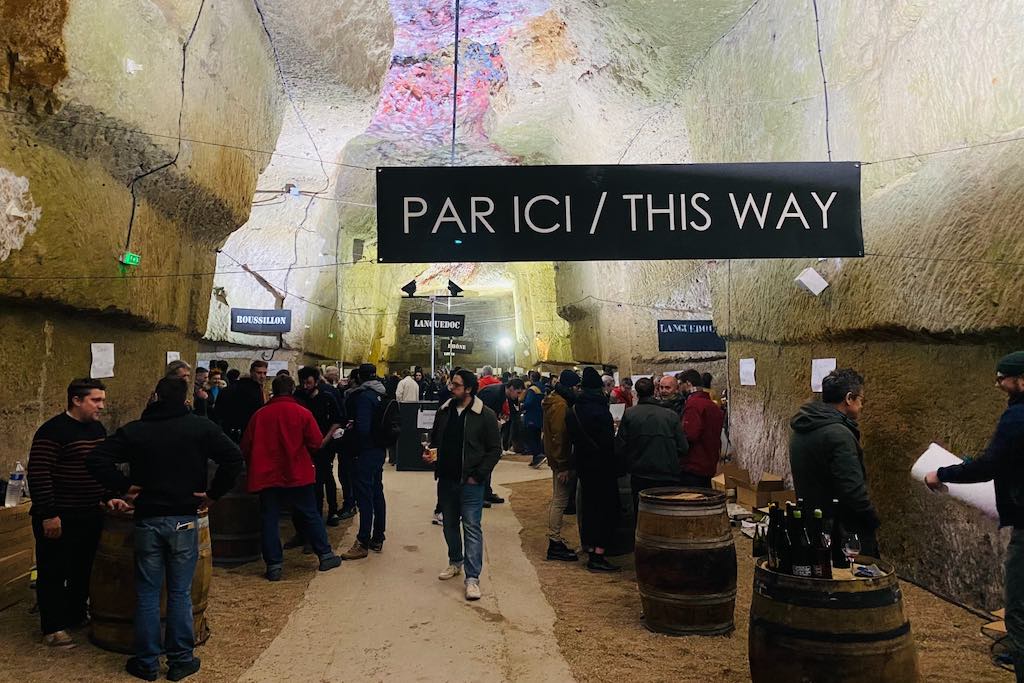To what extent are the law makers of the wine world responsible for the wine in our glasses?
How is power exerted and lived by locally and in the vineyard? First of all one needs to understand that there is a very clear notion of if you want your product to be able to bear the AOC label this is the product you have to make – and if you do not abide to these rules your product becomes inferior and will sell at lesser prices seems to be the logic of the AOC system.
For instance a red wine made in Bordeaux can only be made from the grape varieties Merlot, Cabernet Sauvignon, Malbec, Cabernet Franc, Petit Verdot and Carmenere. So even if you as a winemaker may think that another variety can work better on your plot of land, you are not allowed to plant that variety if you want to stay within the AOC label.
Moreover, there is a specific but also quite diffuse understanding of what a particular AOC tastes like. Meaning that all wines aiming at obtaining the AOC for a particular vintage are presented to a board of wine professionals deeming this or that wine ‘in’ or ‘out’. This is very well expressed in a number of wine guides such as Guide Hachette, Parker Guide, Michelin etc, all of whom seek to point out how wines perform their region.
Rule of law
And now we are really narrowing down the focus on the power of politics. Because when a wine or a winemaker is deemed ‘out’ it can really have a tremendous influence on her livelihood.
So if you are left without alternatives you abide and do everything you can to meet the requirements all the way down to planting density, yield, aging in barrels all reflecting hugely on the taste.
Only, is it not a fair question to ask if the political layer is a limiting power exertion on the winemaker aiming to restraint rather than help and enhance the creative proces of winemaking? In this understanding we can therefore start to talk about autocracy of law makers.
Let’s give an example. In the French back country of the wine landscape you find a number of oenology labs which function as advisors to the winemakers on everything chemistry and related topics in wine production.
But as it often turns out the oenology labs take on a strangely dictating role. They take it upon themselves to give advice to the winemakers in such a manner that it can only rarely be understood as anything other than direct orders.
The power of the oenologist
Being a winemaker myself on the outskirts of the Bordeaux region I have experienced more times than I can count how an oenologist would tell me or my coworkers that we should put wood chips in our wine to approach more closely to the Bordeaux style.
The oenology labs themselves have no power to rule. So when winemakers tend to perceive their advisory as law and not something to contest or contradict this has a number of reasons.
A fairly reasonable way to understand the reasoning for this is to be found in a cultural segmentation dating back ages. Winemaking is, at least traditionally and in the deep rural areas of Southern Europe, a profession passed on from father to son (not daughter). It is a profession learned in the vineyard and in the chais – not in school.
Contrary to this, oenology is an academic profession taught at the university in the city. As a winemaker you can learn oenological terms and tricks. But a winemaker and an oenologist are by definition not the same.
The divide is constituted in contradictions such as practice vs academic, rural vs urban, tradition vs taught, and practical vs intellectual.
Sadly, very often the latter has the upper hand over the former for a number of reasons installing itself as the driver of autocratic ruling over the wine world.




